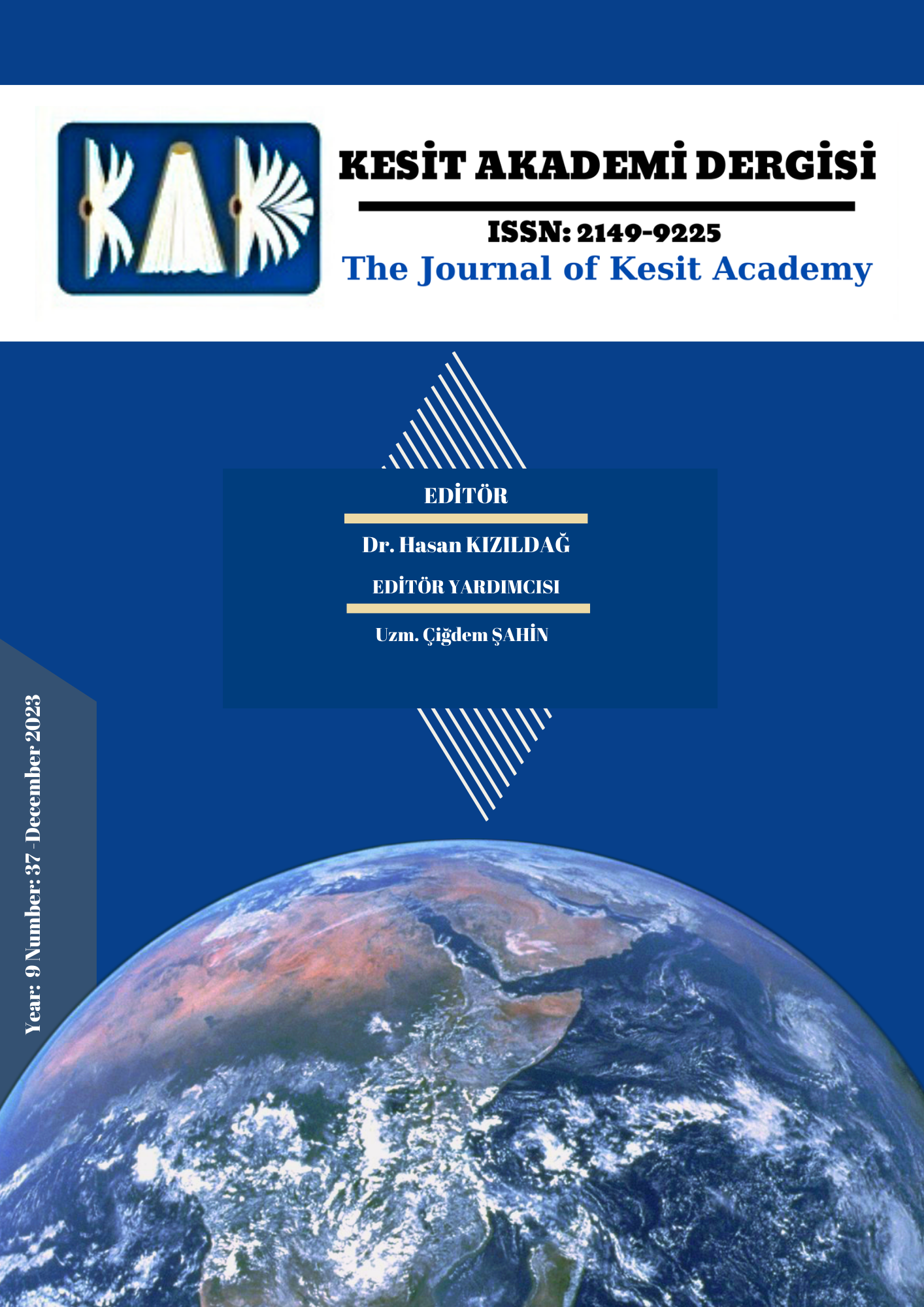Author :
Abstract
Kendi deyimiyle Aydınlanma karşıtı olarak Aydınlanma döneminin çehresini şekillendirmeyi kendisine görev edinen Rousseau, toplumsal kabul ve paradigmaların aksine var olana, var olmasının da ötesinde bakabilmeyi başarmış ünlü bir Fransız düşünürüdür. Geçiş dönemi filozoflarından olan Rousseau, yaşadığı çağın değişmez kabullerine savaş açarak düşünsel dünyanın paradigmalarının sarsılmasına zemin hazırlamıştır. Bu araştırmanın birincil amacı, Rousseau’nun pedagojinin temellerini attığı ünlü ütopyası Emile adlı eserinden hareketle değişen dünyanın belirsiz zamansallığı içinde çocukluğun tarihine felsefenin penceresinden bakabilmektir. Çalışmanın ikincil amacı ise felsefe alan yazında “Ortaçağ-Rönesans-Aydınlanma” dönemlerinde çocuk kavramı üzerinden “insan”a bakış açısındaki değişimlere odaklanılarak, toplumu oluşturan insanın, fizyolojik ve zihinsel gelişim evrelerinde felsefenin rolünü belirlemektir. Bu çalışma nitel bir araştırmadır. Şemsiye işlevi gören nitel araştırmalarda yapılan çalışmalar uzun bir zaman dilimine yayılmaktadır. Nitel bir araştırma olan bu çalışmada yöntem olarak ise doküman analizi kullanılmıştır. Doküman analiziyle araştırılması planlanan olay ve olgular hakkında bilgi içeren yazılı metinlerin analizini içermektedir. Bu bağlamda araştırmada Rouseau’nun Emile adlı eseri başta olmak üzere İnsanlar Arasındaki Eşitsizliğin Kaynağı ve Anayasa Projeleri incelenmiştir. Sonuç olarak araştırmanın bulgularından hareketle, insan doğası (insan doğuştan iyidir, insan doğuştan kötüdür, insan zihni doğuştan boş bir levhadır) tartışmasının çocuğa bakış açısını belirlediği, akla, sorgulamaya yapılan vurguların çocuklara verilen değerin ölçütüyle doğru orantılı olduğu sonucuna varılmıştır.
Keywords
Abstract
Rousseau, who, in his own words, took it upon himself to shape the outlook of the Enlightenment period as an opponent of the Enlightenment, is a famous French thinker who, contrary to social assumptions and paradigms, managed to view what exists beyond its existence. Rousseau, one of the philosophers of the transition period, paved the way for the shaking of the paradigms of the intellectual world by waging war against the unchangeable assumptions of the age he lived in. The primary aim of the present study is to examine the history of childhood within the uncertain temporality of the changing world through the window of philosophy based on Rousseau's famous utopia Emile, in which he laid the foundations of pedagogy. The secondary aim of the study is to determine the role of philosophy in the physiological and mental developmental stages of the human being who constitutes the society by focusing on the changes in the perspective of "human" through the concept of the child in the "Medieval-Renaissance-Enlightenment" periods in the philosophy literature. This study is qualitative research. The qualitative research studies, which function as an umbrella, spread over a long period of time. In this study, which is qualitative research, document analysis was used as a method. Document analysis involves the analysis of written texts containing information about the events and phenomena planned to be investigated. Rouseau's Emile, The Source of Inequality Among Men, and Constitutional Projects were analyzed in this context. Based on the findings of this study, it was concluded that the discussion of human nature (human beings are innately good, human beings are innately bad, the mind of human beings resembles a blank slate) determines the perspective on the child, and that the emphasis on reason and questioning is directly proportional to the criterion of the value given to children.
